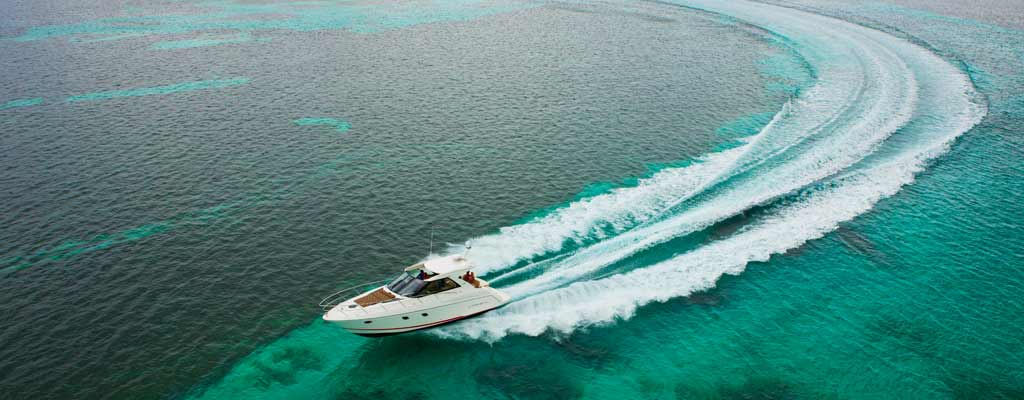Fuel Efficiency
Increasing your fuel efficiency saves you time with fewer trips to the fuel dock, saves money through using less fuel, and saves the environment with decreased emissions. Here are a few tips to help you get the most out of your tank of fuel:
- Tune your engine and keep the boat bottom clean & barnacle free. A properly tuned engine not only gets better mileage, it runs better and has fewer emissions. A fouled bottom also has more drag, making your boat work harder than it needs to.
- Use the appropriate propeller and check for damage. Using the stock propeller may not be best suited for your type of boating. By experimenting with different props, you may find one that saves fuel and improves performance. Also, a damaged prop, even a slight 'ding,' can negatively affect fuel efficiency and performance - get it fixed!
- Drain boat of all unnecessary water before leaving the dock. At about eight pounds a gallon, excess water weight can really add up. The lighter your boat is the better gas mileage you'll get. Keep bilges dry and top off water tanks only if you think you'll need it.
- Reduce unnecessary weight and wind resistance. Bring only the gear you'll need for your outing. Leave long range cruising gear at home if you are only headed out for the day. Clear your decks of clutter and lower canvas tops, they create drag.
- Balance your load and allow the boat to plane quickly. Many boats are stern heavy with occupants, motor, batteries and fuel. Consider moving passengers forward when accelerating or moving some of your heavier items forward to balance your load. Throttle back to cruising speed or sweet spot. Chances are that your boat does not get the best mileage at full speed. Once you get up on a plane, throttle back slightly or find that 'sweet spot' where your boat rides smooth and level and performs its best.
- Avoid excess engine idling. Even when idling in neutral, your boat is consuming fuel and the noise can be especially annoying to those around you. Plus idling can produce potentially deadly carbon monoxide (CO) fumes.
- Use the proper fuel to oil mix for your engine. If you must mix your own fuel, follow the manufacturer's recommendations. Too little or too much oil can harm your engine, affect overall performance and reduce fuel efficiency.
- On larger boats, install a fuel flow meter. In addition to showing gallons used and gallons remaining, these new devices also allow you to see real-time fuel efficiency in gallons per hour. A fuel meter can also help you find the ideal settings for maximum efficiency and performance.
- Purchase a low emission, fuel efficient engine. When looking at a new boat or repowering your existing one, look for an engine that promises better fuel economy and lower emissions. We will cover this in more detail later.

